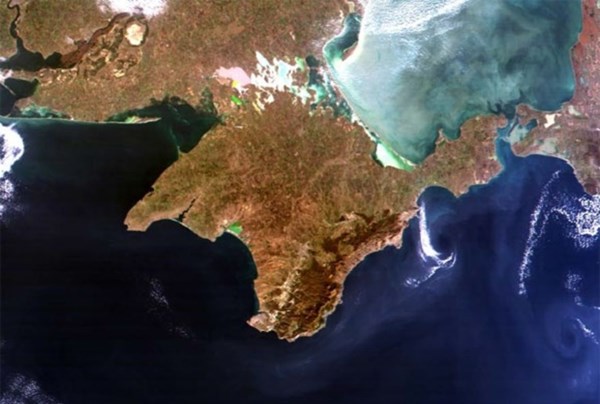Russia expels British journalist Madeline Roache from annexed Crimea
British reporter Madeline Roache was forced to leave the Crimean peninsula by local authorities for several alleged rules violations. Roache was covering violations of human rights in the Russian-annexed Crimea.
Law enforcement official detained her on the morning of February 7 in a hostel in Simferopol where she was staying. She was accused of conducting journalist activity in the Crimean peninsula without obtaining permission from the Russian Ministry of Foreign Affairs and also without a medical insurance policy.
Ms. Roache was then brought to the police station, where she was questioned and found guilty of “violation of rules of entry and stay in the territory of Russia by a foreign citizen,” according to the report of the Radio Liberty.
A lawyer invited by the authorities strongly recommended to the journalist that she acknowledge her guilt, pay a fine and leave the Crimea. Roache insisted in the court that she was neither acting at the direction of her editorial office nor on an assignment, but that she came to the Crimea to get to know in person people whose lives she highlighted in her stories.
According to the police, Roache filmed videos with family members of Crimean Tatar political prisoners held in Russian prisons and sent them using a messenger on her mobile phone. She herself believed she had been placed under surveillance by the Russian special services, who also probably tracked her internet activity. Roache had to pay a fine of 4,000 ruble ($86.32 USD) and was forced to leave the Crimea on the same day.
Madeline Roache has published materials in The Moscow Times, Newsweek, The Globe and Mail and other world media that highlighted violations of human rights in the Crimea and persecution of Crimean Tatars.
During a “standard immigration check”, the Crimean authorities questioned Madeline Roache about her article published in Aljazeera describing the return of the punitive psychiatry practice in the methods used of the Russian special services, as had been proven under the case of Deputy Chairperson of the Crimean Tatar Mejlis Ilmi Umerov. In addition, the journalist was asked about her views on the political situation in the Crimea.
According to a statement by First Deputy Minister of Information Policy of Ukraine Emine Dzhaparova on Facebook, the Roache did not apply to the Ukrainian authorities for permission to travel to the Crimea through mainland Ukraine.
In an annual report released by Freedom House, an international independent organization of human rights, Russian-annexed Crimea ranked as the least free territory in the world. The peninsula scored only nine of the 100 points on the assessment scale, while the rest of Ukraine scored 62 points. In addition, the Crimea scored very low in terms of political rights (7 points) and civil freedoms (6 points).
At the same time, Crimean Tatar Mejlis Eskender Bariev stated that in 2017, Russian special services detained 248 Crimean Tatars, fined 99 and arrested 42.
